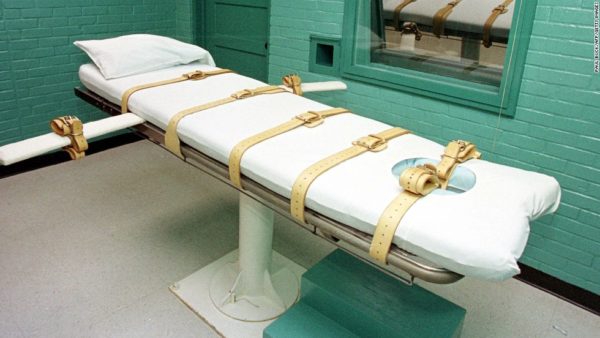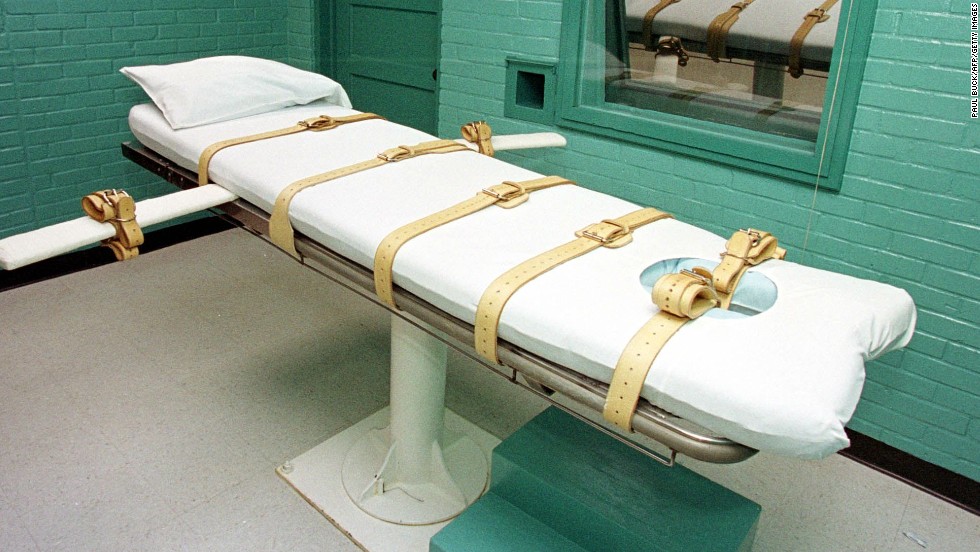 Pfizer Pharmaceuticals announced last week they were blocking their chemicals from being used in lethal injections for death row inmates. The move substantially closes off the last remaining open-market source of drugs that are used in executions according to the New York Times and is one of 20 American and European drug companies that have adopted the restrictions. The reasons given for this is that the company makes drugs and products that save people’s lives, and they wanted to be consistent in the practices they condoned. The decision impacts those states which still have lethal injections in place, primarily Florida and Oklahoma, the leaders in executions with 92 and 112 executions since 1976, respectively. The chemicals that have been banned by Pfizer include:
Pfizer Pharmaceuticals announced last week they were blocking their chemicals from being used in lethal injections for death row inmates. The move substantially closes off the last remaining open-market source of drugs that are used in executions according to the New York Times and is one of 20 American and European drug companies that have adopted the restrictions. The reasons given for this is that the company makes drugs and products that save people’s lives, and they wanted to be consistent in the practices they condoned. The decision impacts those states which still have lethal injections in place, primarily Florida and Oklahoma, the leaders in executions with 92 and 112 executions since 1976, respectively. The chemicals that have been banned by Pfizer include:
- The sedative midazolam, which has been used to render a prisoner unconscious;
- Pancuronium bromide, which can be used as a paralytic agent that halts breathing;
- And potassium chloride, which can cause cardiac arrest.
Many states that have the capital punishment believe that the drug ban is an undue burden since the drug suppliers are becoming harder to find. The drug drought has made it so that states have been forced to put executions on hold, and some have had to resort to using methods such as “procuring the drugs from alternative sources, devising a one-drug method, employing other drugs such as midazolam or propofol, and using controversial compounding pharmacies to manufacture the drugs,” according to CNN. This has also spurred a lot of lawsuits, making it so that states have to find alternative ways to complete capital punishment, including electrocution, lethal gas, firing squad and hanging . However, activists against the death penalty find this to be a victory since it makes it harder for states to complete executions. The vendetta is that states care more about the ability to execute death row inmates, potentially violating inmates human rights, than acquiring legal drugs and administering them safely.
31 states currently have capital punishment in place, 19 states having no form of the death penalty and Connecticut, Illinois, Maryland, Nebraska and New Mexico abolished their death penalties since 2009. The loss of the lethal injection drug is a critical hit for capital punishment, being that it is the primary method of executions with 1,425 executions, and only 171 relying on other methods since Texas became the first state to execute using the lethal injection method in 1982. The loss of the chemicals provided by Pfizer leaves many states in a scramble to find the drugs and chemicals necessary to complete the executions in a timely manner. Consumers have filed multiple “lawsuits in Texas, Georgia, Arkansas and Missouri, asking courts to force states to identify their drug providers.” These lawsuits are also resulting from malpractice, with examples coming out of Arizona, where Joseph Wood “repeatedly gasped for air during an execution that dragged on for nearly two hours” during his execution in 2014 and it was questioned whether the untested drugs had to do with the malpractice. The case, according to the Death Penalty Information center, was closed by the Supreme Court and the state was allowed to keep the mystery drugs a secret.
According to an article written by the Intercept, most states that continue to practice the death penalty “rely on anonymous compounding pharmacies, whose loose regulations vary wildly from state to state, making them dangerously unreliable compared to FDA approved drug companies when it comes to the efficacy of their products.” Most states that practice capital punishment also acquire the drugs illegally, having records of breaking “federal law by importing illicit drugs from overseas.” Breaking the laws to acquire the drugs used in lethal injections shows that capital punishment holds critical importance to the states which use it. One of the largest executors, the state of Texas, provided that the Pfizer chemical and drug ban would not be much of an issue. Texas Department of Criminal Justice spokesperson Jason Clark said, “It’s not anticipated that Pfizer’s decision will have an impact on the agency’s current ability to carry out executions.” Without the legalized chemicals, it becomes obvious that the states have an imperative mission to continue these executions in a timely manner.
It is then important for states, instead of having illegal chemicals and drugs imported into the United States, to continue to find other methods of capital punishment that do not include lethal injection. Currently, most Americans continue to support the death penalty, with 61% supporting it versus 37% who do not. If the states continue to use capital punishment, and if companies like Pfizer revoke their chemicals used for lethal injections, then states have to find ways to continue using capital punishment methods that do not include illegal methods of lethal injections. Many states have already found other ways of execution, including electrocutions and lethal gas, but they are not as widespread in death penalty states as lethal injections. In order to continue capital punishments in a completely safe, legal and proficient manner, these lesser-known practices need to become more widely legalized in capital punishment states, since many are still not legalized practices in every state.
Take Action: Learn more about the Death Penalty here.




